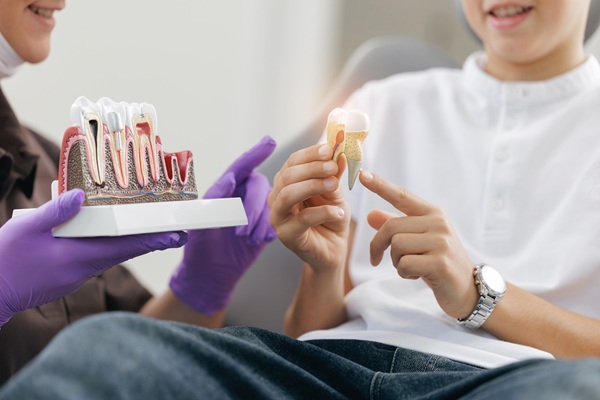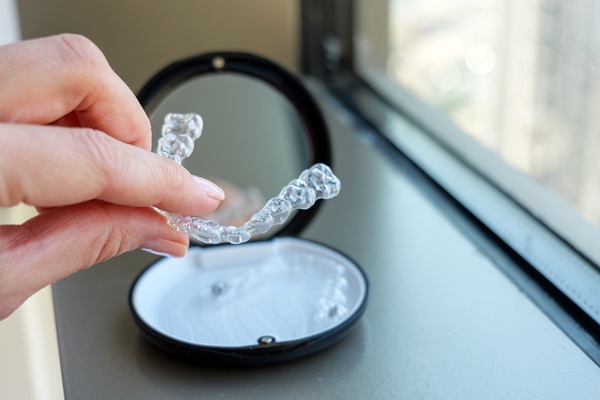When Would a Dentist Recommend a Tooth Extraction?
Various situations exist where a dentist would recommend . Specific symptoms present themselves to let you know it might be a possibility. A dentist will confirm that a tooth extraction is the way to go. If you know what to look for, you will be able to tell when you need to visit your dentist.
Signs tooth extractions may be necessary
First, there is pain, followed by thinking a tooth extraction may be on the horizon. Believe it or not, an extraction may not be necessary. Only the dentist would be able to say one way or another. The main reasons a dentist will recommend tooth extractions are as follows:
- There is a badly infected tooth
- Damage cannot be fixed with a crown or filling
- Pain is persistent after previous treatments, like crowns, fillings, or root canals
- Not enough space for all teeth
- Orthodontic treatment is necessary, so crowding needs to be fixed
Understanding the periodontal disease impact
Anyone can suffer from periodontal disease, which is why dentists encourage good dental hygiene by recommending flossing and brushing at least twice a day. Over time, bacteria will destroy teeth as it eats away at enamel and causes cavities. Periodontal disease should not be taken lightly. Other things that can happen with periodontal disease include abscesses and other soft tissue infections. In worse scenarios, infections in the jaw could get bad enough to kill the tissue and make its way into the jawbone. When infections get that bad, someone could even end up with sepsis, which is blood poisoning.
Wisdom teeth may need extraction
Wisdom teeth are typical candidates for a tooth extraction as they tend to crowd a mouth if they ever come through. If wisdom teeth do not come through and instead become impacted, they need to be extracted. Tooth impaction can be pretty painful, so getting them removed helps teeth and gums heal properly. Occasionally, wisdom teeth do not erupt completely or normally, and that can make it difficult to brush and floss effectively. Not doing so will result in damage, decay, and possibly infection, resulting in necessary tooth extractions.
Dealing with the aftermath of an extraction
Prevention is always preferred, so with good hygiene, including brushing and flossing as suggested, it will be easier for you to avoid a tooth extraction. If the dentist has decided on tooth extractions, the process is a lot easier now than decades ago. Patients can request sedation so as not to be aware during the procedure. All that is needed afterward is some over-the-counter pain relievers to dull any discomfort.
It can take up to a couple of months for a tooth to heal. Patients must be careful about eating and chewing. Avoid crunchy or hard things like ice, and do not eat chewy things until the extraction point is fully healed. If there are any questions, ask your dentist for further assistance or instructions.
Request an appointment here: https://draperfamilydentist.com or call Draper Parkway Dental at 8012524439 for an appointment in our Draper office.
Check out what others are saying about our dental services on Yelp: .
Recent Posts
While dentists strive to save natural teeth whenever possible, certain situations may require tooth extraction to preserve oral health. When severe damage, decay, infection, or other oral health issues threaten the health of your smile, an extraction can save it. It is important patients recognize the signs of trouble and seek treatment promptly.Extensive tooth decay…
Tooth extraction is a procedure done to remove a damaged or potentially problematic tooth. Like every dental procedure, the wound created by the extraction process heals over time with proper care. The dentist will provide the necessary aftercare instructions to follow.Aside from using the recommended medications and resting adequately, there are certain things to avoid…
Tooth extraction is a relatively common procedure as teeth become decayed, which results in a need for removal. Many people who are living with problematic teeth automatically assume that these teeth need to be extracted from the mouth, however, sometimes they can be salvaged by a general dentist. It is good to know when a…
In most serious situations, an emergency dentist is the right person to turn to for your oral health. Ignoring a dental emergency can have drastic effects on your overall wellness. Thankfully, a dentist practicing emergency care will have the knowledge and training to restore your smile and the function of your mouth. In cases where…


